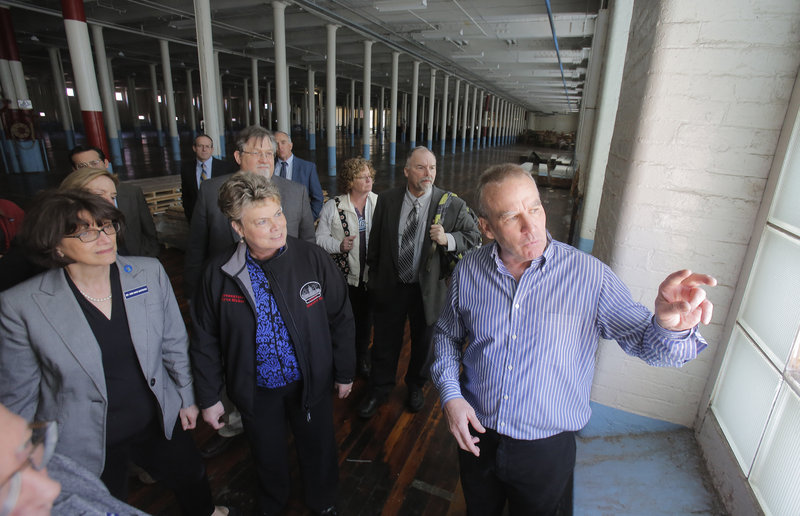BIDDEFORD – Legislators focused on work force development got some unexpected advice Friday about the best way to train workers for the future: Forget computer science degrees and think about art school.
Fletcher Kittredge, chief executive of Internet and telephone company GWI of Biddeford, said workers need a foundation in creative thinking more than they need training in technology that may quickly become obsolete.
“Start out with an art degree. Being able to be creative, to interact with people, is more likely to be important for someone’s career,” Kittredge told the Joint Select Committee on Maine’s Workforce and Economic Future. “A lot of what we think of as STEM (science, technology, engineering and math) — that’s out of date. It’s like teaching someone to use a slide rule.”
Kittredge said computers and robots will become increasingly sophisticated and perform functions currently done by people. Trying to teach STEM skills in a constantly changing era will be ineffective, he said.
“Machines are getting smarter and smarter. What computers won’t be good at is judgment and reasoning. That’s where getting a liberal arts degree comes in handy. It teaches you to think,” Kittredge said. “We can train almost anyone who has drive and intellectual curiosity. If I have an employee who shows up who is lacking in individual curiosity, they aren’t going to last or pick it up.”
Kittredge spoke on a panel before the legislative committee, which was on a “listening tour” in Biddeford. It marked the committee’s third and final road trip, which began in Bangor and Orono and extended to Belfast. Earlier in the day, the committee toured the North Dam Mill building, which has more than 80 businesses, as well as residential units and commercial and event space.
The Legislature has been debating $11 million in job training initiatives. One new program would call for the Department of Labor to use job and training data to coordinate resources within state government and businesses to get a comprehensive picture of the job market. The issue of work force development has been a legislative priority for both Democrats and Republicans, and Gov. Paul LePage has spent much of his administration saying that Maine needs to battle a “skills gap” in worker training.
Biddeford City Manager John Bubier echoed Kittredge’s comments, saying “creative thinking is really the front-end of any enterprise.”
Bubier also expressed other concerns, such as the need for better access to capital for small businesses and better retraining efforts for workers who lose their jobs. Biddeford has recently lost major employers, such as Hostess Brands and the Maine Energy Recovery Co. The Hostess bakery in Biddeford was acquired earlier this year by Flowers Foods of Georgia, but the company hasn’t said when or if it will reopen the plant.
“How do you quickly transition the person who loses their job at age 50? What we don’t do well is OJT (on the job training). We need to rethink current policies,” Bubier said.
Biddeford Mayor Alan Casavant said economic recovery and work force development efforts take “futuristic thinking” by municipalities and businesses.
“We may be training for a job today, but it may be obsolete in two years,” Casavant said.
Jessica Hall can be contacted at 791-6316 or at:
jhall@pressherald.com
Send questions/comments to the editors.




Success. Please wait for the page to reload. If the page does not reload within 5 seconds, please refresh the page.
Enter your email and password to access comments.
Hi, to comment on stories you must . This profile is in addition to your subscription and website login.
Already have a commenting profile? .
Invalid username/password.
Please check your email to confirm and complete your registration.
Only subscribers are eligible to post comments. Please subscribe or login first for digital access. Here’s why.
Use the form below to reset your password. When you've submitted your account email, we will send an email with a reset code.